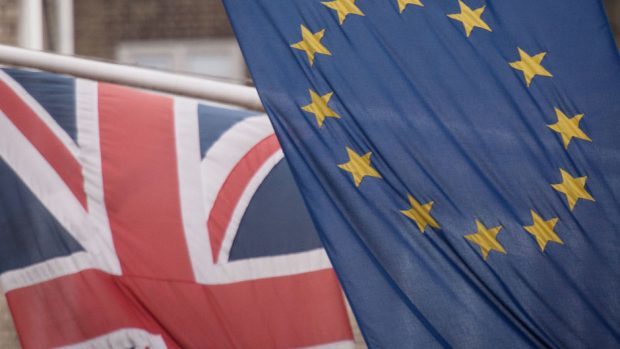The International Monetary Fund has claimed that a vote for a British exit from the European Union could cause “severe regional and global damage”.
The financial body also warned the referendum on UK membership had already created uncertainty in its World Economic Outlook report.
And it downgraded its forecast for UK economic growth over fears of disruption to trade relations if Britons vote to leave.
Both David Cameron and George Osborne endorsed the report, with the chancellor calling it a “stark” warning of the risks.
But pro-Brexit campaigners accused the IMF of “talking Britain down” at Mr Osborne’s request, adding it had been “consistently wrong” in past forecasts.
Meanwhile, former first minister, Alex Salmond, told an influential group of MPs yesterday that an institution like the EU would have to be invented if it did not already exist.
The ex-SNP leader was giving evidence to the Commons foreign affairs committee, alongside former Scottish secretary Sir Malcolm Rifkind, who is also in favour of remaining in the EU.
Labour MP Gisela Stuart and former defence secretary Liam Fox, both for Brexit, also spoke at the hearing on the costs and benefits of the UK’s EU membership.
Mr Salmond said it had helped with a whole range of policy initiatives during his time as FM and should be embraced.
And he insisted that rather than restricting influence, for a small country it opened up more possibilities.
The Gordon MP, who joked that the committee was asking three Scots and a German (Ms Stuart) to try to deal with the “anguish of England”, added: “Europe for many, many people in Scotland, is a bit like the weather.
“Everyone moans about it, but not that many want to abolish it.”
Earlier in the Commons, he said the British people – and the rest of the EU – had been “crying out” for a debate on Europe “which rises above the internal divisions of the Conservative party”.
Putting the case for Brexit, Mr Fox said he was opposed to the supranationalism of the EU project.
He added: “I don’t believe we have a reformed EU. I think it’s an un-reformable EU because those at its centre don’t want it to be reformed.
“It remains backward-looking and inward-looking.”
Ms Stuart added that no-one among those in favour of remaining was prepared to defend the institution itself.
She also urged people to consider the issue of democratic accountability and stressed the EU was different to other alliances such as Nato because it required legal supremacy.
Sir Malcolm said Britain had lost more sovereignty to Nato than to the EU, adding that the UK’s clout within the union should not be underestimated.
The IMF scaled back its projection of UK economic growth for 2016 by 0.3 percentage points to 1.9% – marginally below the 2% forecast of the Office for Budget Responsibility – but held its forecast for 2017 at 2.2%.
